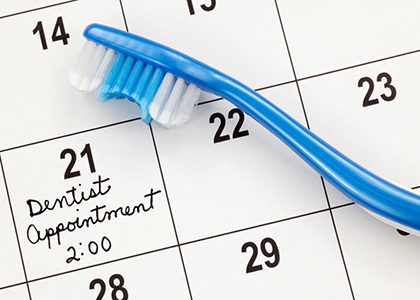Gum Bleeding: Causes, Prevention, and Treatment
Gum bleeding is a common issue that affects many people but is often underestimated in severity. Not just an uncomfortable occurrence, it can also be a precursor to more serious problems. This article will discuss the causes, symptoms, treatment, and prevention of gum bleeding to help you maintain the health of your teeth and gums.
Causes of Gum Bleeding
The gums, or gingiva, are part of the mucosal lining of the mouth that covers the jaws, providing protection for the teeth and jawbone. In a healthy state, gums are pink, firm, and do not bleed. Their primary role is to stabilize the teeth and prevent the entry of bacteria. Maintaining healthy gums is crucial, involving proper oral hygiene that includes brushing twice daily, using dental floss, and regular dental check-ups.
Common causes of gum bleeding include poor oral hygiene, certain diseases, and lifestyle factors.
Poor Oral Hygiene: Inadequate brushing and flossing can lead to plaque and tartar build-up, causing gingivitis.
Plaque: A soft, sticky layer full of bacteria that forms on the teeth. If not regularly removed, it hardens into tartar.
Tartar: Hardened plaque that can only be removed by a dentist. Tartar's rough surface further encourages plaque build-up, worsening gingivitis.
Improper brushing techniques, such as brushing too hard, and neglecting to floss contribute to plaque accumulation and gum inflammation.
Diseases: Certain systemic diseases also play a significant role in the development of gum bleeding.
Diabetes: High blood sugar levels can weaken the gums and increase infection risk, making gum inflammation and bleeding more common in diabetics.
Blood Clotting Disorders: Conditions such as hemophilia or the use of blood thinners can increase the likelihood of gum bleeding.
Autoimmune Diseases: Conditions like lupus or rheumatoid arthritis can trigger inflammatory reactions in the gums.
Hormonal Changes: Hormonal fluctuations during pregnancy, menstruation, or menopause can make the gums more susceptible to bleeding.
Lifestyle Factors:
Smoking: Tobacco use harms gum tissues, reduces oxygen supply, and slows healing, leading to frequent bleeding.
Poor Nutrition: A diet low in vitamins and minerals, especially vitamin C, can weaken the gums and cause bleeding. A balanced diet rich in vegetables, fruits, and whole grains promotes gum health.
Excessive Alcohol Consumption: Alcohol can dehydrate the mouth, reducing saliva production and increasing the risk of bacterial infections. Saliva plays a crucial role in controlling bacterial growth and keeping the mouth clean.
Stress: High stress levels can weaken the immune system, making the body less effective at fighting infections and inflammation, including gingivitis.
Symptoms of Gum Bleeding
Symptoms of gum bleeding can vary, with the most common being:
Bleeding during brushing: Bleeding while brushing your teeth can be an early warning sign. Persistent bleeding despite gentle brushing indicates potential gum disease.
Swollen or red gums: Inflamed gums often appear red and swollen, a common sign of gingivitis.
Pain and sensitivity: Affected areas may be painful, especially when cleaning teeth or eating. Sensitivity can worsen with the consumption of hot or cold foods and drinks.
Treatment of Gum Bleeding
Home Remedies: Mild cases can often be managed with home care. Key steps include:
Regular and gentle brushing: Use a soft-bristled brush and fluoride toothpaste.
Flossing: Daily flossing removes plaque and food particles from between the teeth.
Antibacterial mouthwash: Use mouthwash to reduce bacteria in the mouth. Look for products containing chlorhexidine or other antibacterial ingredients.
Professional Treatments: For more severe cases, professional interventions may be necessary.
Deep cleaning: This involves removing tartar and plaque from the teeth and beneath the gums, possibly including scaling and root planing.
Medication: In cases of severe infection, antibiotics may be prescribed to kill the bacteria and reduce inflammation.
Preventing Gum Bleeding
To prevent gum bleeding, adhere to the following:
Proper oral hygiene: Brush twice daily, use dental floss, and visit the dentist regularly for cleanings and check-ups.
Healthy diet: Consume a diet rich in vitamins and minerals to support gum health.
Avoid smoking: Smoking can exacerbate gum problems and lead to more frequent bleeding.
When to Visit a Dentist
Visit a dentist if you experience persistent bleeding, severe pain or swelling, or if bleeding is accompanied by bad breath. These symptoms could indicate more serious dental issues requiring professional treatment.
In summary, maintaining excellent oral hygiene, eating a balanced diet, and regular dental visits are crucial for preventing and managing gum bleeding. If you're concerned about gum bleeding, don't hesitate to consult a dentist to ensure your gums stay healthy and strong.




















